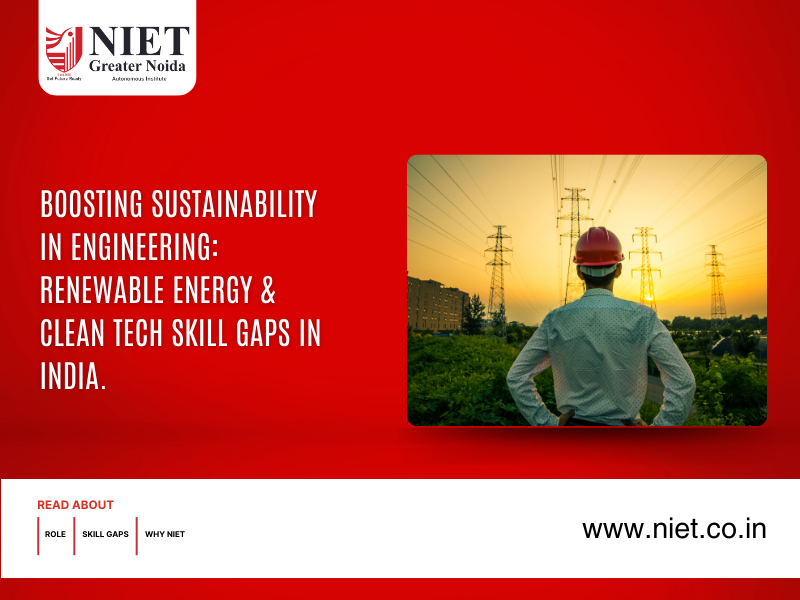India’s transition toward a greener economy has placed engineering education at the forefront of sustainable development. With rapid advancements in renewable energy and clean technologies, industries are demanding engineers who can integrate innovation with environmental responsibility. This is where the role of UPSEE's best engineering colleges becomes vital, ensuring that students are not only technically proficient but also sustainability-conscious.
The Skill Gaps in Renewable Energy & Clean Tech
If you’Despite India’s ambitious goals in solar, wind, and green hydrogen, there are significant skill gaps in engineering graduates:
- Lack of interdisciplinary knowledge combining mechanical, electrical, and environmental sciences.
- Limited practical exposure to industry-grade renewable energy systems.
- Shortage of R&D-focused engineers who can contribute to indigenous technology development.
- Inadequate awareness about sustainable project planning, energy efficiency, and carbon-neutral technologies.
Bridging these gaps requires curriculum innovation, advanced laboratories, and close industry-academia collaboration.
Role of an Autonomous Institute in Driving Change
An autonomous institute has the flexibility to design curricula that reflect current industry trends and future needs. Unlike rigid structures, autonomy allows colleges to:
- Integrate renewable energy modules into core engineering programs.
- Offer clean tech electives such as smart grids, energy storage, and sustainable materials.
- Collaborate with global organizations for research and exchange programs.
- Encourage innovation through incubation centers, hackathons, and student-led projects.
This approach not only addresses the skill gap but also creates future-ready engineers capable of leading India’s clean energy transformation.
NIET – Empowering Future Engineers for a Sustainable Tomorrow
Among the UPSEE best engineering colleges, NIET Greater Noida stands out as an autonomous institute committed to sustainability and innovation. NIET blends traditional engineering fundamentals with forward-looking programs that emphasize renewable energy, clean technology, and green practices.
Highlights include:
- Industry-integrated curriculum focused on sustainable engineering practices.
- Research-driven projects in renewable energy and green technologies.
- Skill development programs aligned with the Government of India’s clean energy initiatives.
- Strong placement opportunities with companies working in energy, technology, and sustainable infrastructure.
NIET is not only shaping engineers for today’s challenges but also building leaders for tomorrow’s sustainable world.
Summary
The future of engineering lies in sustainability. By addressing the skill gaps in renewable energy and clean tech, India can accelerate its transition to a green economy. The role of UPSEE best engineering colleges is central to this mission, and NIET, as an autonomous institute, exemplifies how academic flexibility, innovation, and industry collaboration can create future-ready engineers.


















